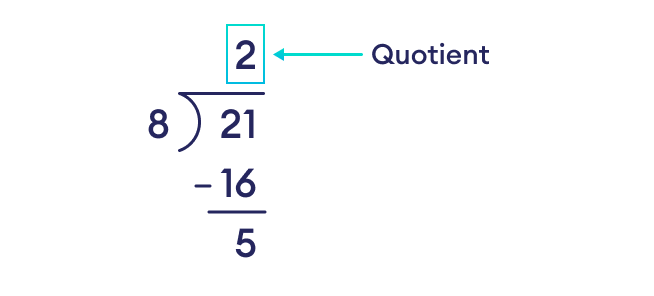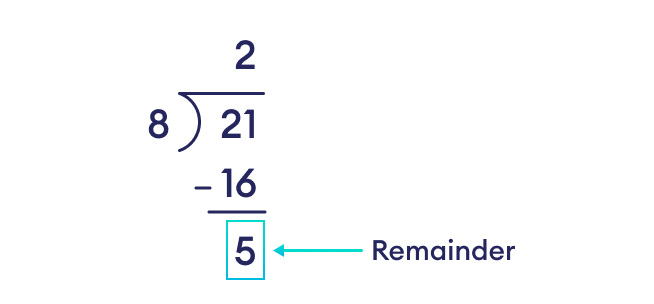An operator is a symbol that performs operations on values or variables. For example, - is an operator that performs subtraction between two values.
Rust programming provides various operators that can be categorized into the following major categories:
- Arithmetic Operators
- Compound Assignment Operators
- Logical Operators
- Comparison Operators
1. Arithmetic Operators in Rust
We use arithmetic operators to perform addition, subtraction, multiplication, and division.
Here's a list of various arithmetic operators available in Rust. We have used the variable names a and b in the example.
| Operator | Example |
|---|---|
+ (Addition) |
a + b |
- (Subtraction) |
a - b |
* (Multiplication) |
a * b |
/ (Division) |
a / b |
% (Remainder) |
a % b |
Example 1: Addition, Subtraction and Multiplication Operators
fn main() {
let a = 20;
let b = 2;
// add two variables using + operator
let x = a + b;
println!("{} + {} = {}", a, b, x);
// subtract two variables using - operator
let y = a - b;
println!("{} - {} = {}", a, b, y);
// multiply two variables using * operator
let z = a * b;
println!("{} * {} = {}", a, b, z);
}
Output:
20 + 2 = 22 20 - 2 = 18 20 * 2 = 40
Example 2: Rust Division Operator
fn main() {
let dividend = 21;
let divisor = 8;
// arithmetic division using / operator with integers
let division = dividend / divisor;
println!("{} / {} = {}", dividend, divisor, division);
}
Output:
21 / 8 = 2
In the above example, we use the / operator to divide two integers 21 and 8. The output of the operation is 2.
In standard calculation, 21 / 8 gives 2.625. However, in Rust, when the / operator is used with integer values, we get the quotient (integer) as the output.

If we want the actual result, we should use the / operator with floating-point values. For example,
fn main() {
let dividend = 21.0;
let divisor = 8.0;
// arithmetic division using / operator with floating point values
let division = dividend / divisor;
println!("{} / {} = {}", dividend, divisor, division);
}
Output:
21 / 8 = 2.625
Here, both dividend and divisor variables are assigned floating point values. Thus, the division operation returns a floating point result of 2.625.
Example 3: Remainder Operator
fn main() {
let dividend = 21;
let divisor = 8;
// arithmetic remainder using % operator
let remainder = dividend % divisor;
println!("{} % {} = {}", dividend, divisor, remainder);
}
Output:
21 % 8 = 5
Here, we use the remainder operator % with two integers: 21 and 8. The output of the operation is 5.
The remainder operator %, as the name suggests, always returns the remainder after division.

Assignment Operator
We use an assignment operator to assign a value to a variable. For example,
let x = 5;
Here, = is an assignment operator that assigns the value on the right 5 to the variable x on the left. The assignment operator is the most common operator in Rust.
Assignment Operators
In Rust, we use the assignment operator to assign a value to a variable. For example,
let mut x = 1;
Here, the = operator assigns the value on the right to the variable on the left.
Compound Assignment Operators
We can also use an assignment operator and an arithmetic operator, known as a compound assignment operator. For example,
let mut x = 1;
// compound assignment operators
x += 3;
Here, += is a compound assignment operator known as an addition assignment. It first adds 3 to the value of x (1) and assigns the final result (4) to x.
Here's a list of various compound assignment operators in Rust.
| Operator | Example | Equivalent To |
|---|---|---|
+= (addition assignment) |
a += b |
a = a + b |
-= (subtraction assignment) |
a -= b |
a = a - b |
*= (multiplication assignment) |
a *= b |
a = a * b |
/= (division assignment) |
a /= b |
a = a / b |
%= (remainder assignment) |
a %= b |
a = a % b |
Example: Compound Assignment Operator
fn main() {
let mut a = 2;
// arithmetic addition and assignment
a += 3;
println!("a = {}", a);
}
Output:
a = 5
Comparison Operators
We use comparison operators to compare two values or variables. For example,
6 > 5
Here, the relational operator > (greater than) checks if 6 is greater than 5.
A relational operator returns:
trueif the relation between two values is correctfalseif the relation is incorrect
Note: Comparison operators are also known as relational operators.
Here's a list of comparison operators available in Rust.
| Operator | Example | Description |
|---|---|---|
> (Greater than) |
a > b |
true if a is greater than b |
< (Less than) |
a < b |
true if a is less than b |
>= (Greater than or equal to) |
a >= b |
true if a is greater than or equal to b |
<= (Less than or equal to) |
a <= b |
true if a is less than or equal to b |
== (Equal to) |
a == b |
true if a is equal to b |
!= (Not equal to) |
a != b |
true if a is not equal to b |
Example: Comparison Operators
fn main() {
let a = 7;
let b = 3;
// use of comparison operators
let c = a > b;
let d = a < b;
let e = a == b;
println!("{} >= {} is {}", a, b, c);
println!("{} <= {} is {}", a, b, d);
println!("{} == {} is {}", a, b, e);
}
Output:
7 > 3 is true 7 < 3 is false 7 == 3 is false
Logical Operators
We use logical operators to perform logical decisions or operations. A logical operation returns either true or false depending on the conditions. For example,
(5 < 6) && (7 > 4)
Here, && is the logical AND operator that returns true if both conditions are true. In our example, both conditions are true. Hence the expression is true.
There are mainly 3 logical operators in Rust.
| Operator | Example | Description |
|---|---|---|
&& (Logical AND) |
exp1 && exp2 |
returns true if both exp1 and exp2 are true |
|| (Logical OR) |
exp1 || exp2 |
returns true if any one of the expressions is true |
! (Logical NOT) |
!exp |
returns true if the expression is false and returns false, if it is true |
Example: Logical Operators
fn main() {
let a = true;
let b = false;
// logical AND operation
let c = a && b;
// logical OR operation
let d = a || b;
// logical NOT operation
let e = !a;
println!("{} && {} = {}", a, b, c);
println!("{} || {} = {}", a, b, d);
println!("!{} = {}", a, e);
}
Output:
true && false = false true || false = true !true = false
Note: The logical AND and OR operators are also called short-circuiting logical operators because these operators don't evaluate the whole expression in cases they don't need to. For example, in this expression
false || true || false
The || operator evaluates to true because once the compiler sees a single true expression, it skips the evaluation and returns true directly.